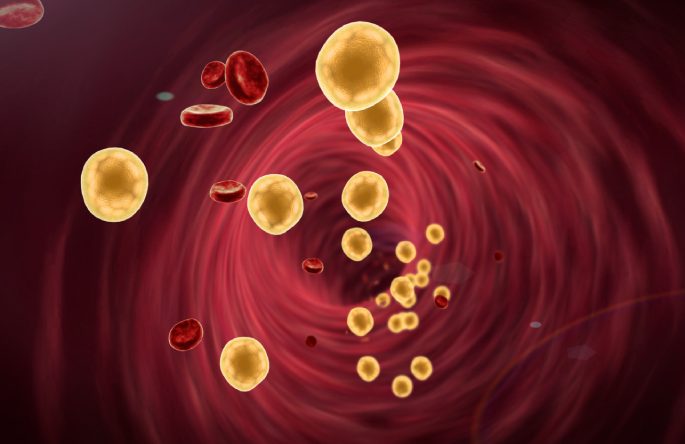Understanding Cholesterol and Its Role in Health
Cholesterol is a waxy substance essential for various physiological functions, including cell membrane structure, hormone synthesis, and bile acid production. However, elevated levels of low-density lipoprotein (LDL) cholesterol, often referred to as “bad” cholesterol, and reduced levels of high-density lipoprotein (HDL) cholesterol, known as “good” cholesterol, are major risk factors for cardiovascular diseases such as atherosclerosis, heart attack, and stroke.
Cholesterol metabolism is tightly regulated by a complex interplay of genetic, dietary, and lifestyle factors. Disruptions in this delicate balance can lead to dyslipidemia, characterised by abnormal levels of cholesterol in the bloodstream, posing significant health risks.
The Role of NMN in Cholesterol Metabolism
Emerging evidence suggests that NMN may modulate cholesterol metabolism through multiple pathways, offering potential benefits for cardiovascular health:
1. Activation of Sirtuin Pathways: NMN supports the activity of sirtuins, a family of proteins implicated in regulating lipid metabolism. Sirtuins play a crucial role in maintaining cellular homeostasis and responding to metabolic stress. By activating sirtuin pathways, NMN may promote lipid clearance and reduce circulating LDL cholesterol levels.
2. Enhancement of Mitochondrial Function: NMN supplementation has been shown to improve mitochondrial biogenesis and function. Mitochondria play a key role in cellular energy production and lipid metabolism. Optimal mitochondrial activity facilitated by NMN may contribute to efficient breakdown and utilisation of cholesterol and fatty acids.
3. Anti-inflammatory Effects: Chronic inflammation is closely linked to dyslipidemia and cardiovascular disease. NMN exhibits anti-inflammatory properties, which could mitigate inflammation in blood vessels and reduce the progression of atherosclerosis, thereby indirectly impacting cholesterol levels.
Evidence from Preclinical Studies
Animal studies have provided valuable insights into the potential of NMN in modulating cholesterol metabolism and improving cardiovascular health:
* Research involving mice fed a high-fat diet demonstrated that NMN supplementation led to reduced LDL cholesterol levels and improved HDL cholesterol levels. These effects were accompanied by changes in gene expression related to lipid metabolism and inflammation.
* In a study on diabetic rats, NMN administration was found to enhance lipid clearance and reduce the accumulation of cholesterol in the liver, suggesting potential benefits in preventing fatty liver disease and dyslipidemia.
Human Clinical Trials
While most of the evidence comes from preclinical studies, early human trials have also yielded promising results:
* A clinical study involving overweight and obese individuals found that NMN supplementation was associated with improvements in lipid profiles, including reductions in LDL cholesterol and triglyceride levels.
* Another trial investigated the effects of NMN in elderly individuals with metabolic syndrome. Participants who received NMN demonstrated improvements in various cardiovascular risk factors, including cholesterol levels and arterial stiffness.
Potential Implications and Future Directions
The potential of NMN in regulating cholesterol levels holds significant implications for cardiovascular disease prevention and management. If further validated in larger clinical trials, NMN supplementation could emerge as a complementary strategy to existing therapies for dyslipidemia and atherosclerosis.
However, it’s essential to exercise caution and consult healthcare professionals before initiating NMN supplementation, especially for individuals with pre-existing cardiovascular conditions or those taking medications that affect cholesterol levels. Long-term safety and efficacy studies are needed to establish clear guidelines for NMN use in promoting cardiovascular health.
In conclusion, while the research on NMN and cholesterol regulation is still evolving, preliminary findings suggest that NMN holds promise as a potential intervention for improving lipid profiles and reducing cardiovascular risk. By targeting fundamental pathways involved in lipid metabolism and inflammation, NMN offers a novel approach to addressing dyslipidemia and supporting cardiovascular wellness. Continued research efforts are needed to elucidate the precise mechanisms underlying NMN’s effects on cholesterol metabolism and translate these findings into effective clinical strategies for promoting cardiovascular health and longevity.

